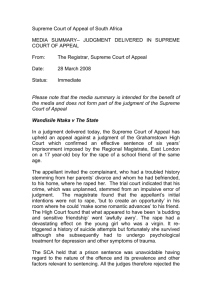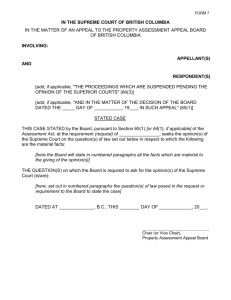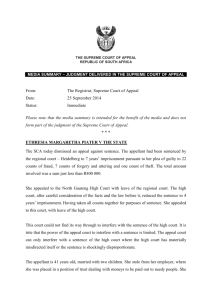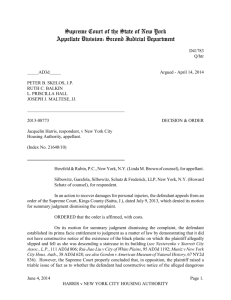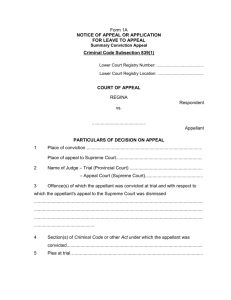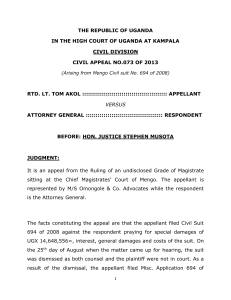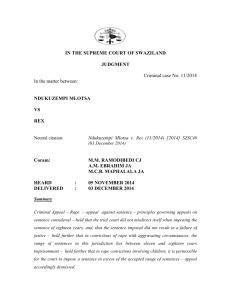PDF format
advertisement
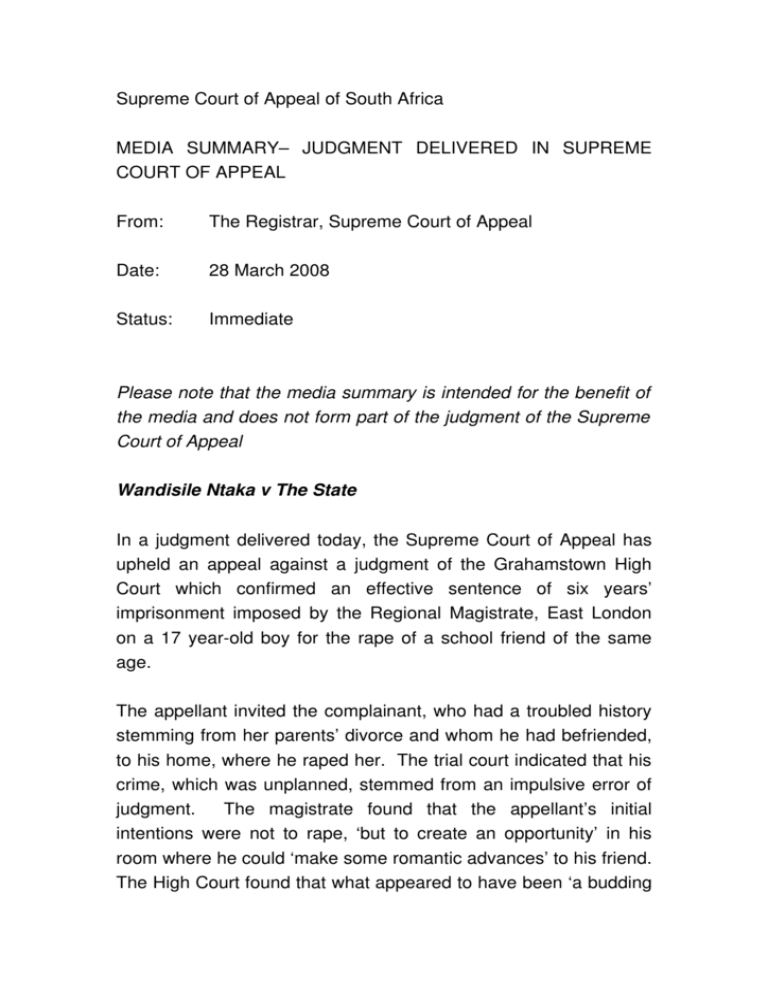
Supreme Court of Appeal of South Africa MEDIA SUMMARY– JUDGMENT DELIVERED IN SUPREME COURT OF APPEAL From: The Registrar, Supreme Court of Appeal Date: 28 March 2008 Status: Immediate Please note that the media summary is intended for the benefit of the media and does not form part of the judgment of the Supreme Court of Appeal Wandisile Ntaka v The State In a judgment delivered today, the Supreme Court of Appeal has upheld an appeal against a judgment of the Grahamstown High Court which confirmed an effective sentence of six years’ imprisonment imposed by the Regional Magistrate, East London on a 17 year­old boy for the rape of a school friend of the same age. The appellant invited the complainant, who had a troubled history stemming from her parents’ divorce and whom he had befriended, to his home, where he raped her. The trial court indicated that his crime, which was unplanned, stemmed from an impulsive error of judgment. The magistrate found that the appellant’s initial intentions were not to rape, ‘but to create an opportunity’ in his room where he could ‘make some romantic advances’ to his friend. The High Court found that what appeared to have been ‘a budding and sensitive friendship’ went ‘awfully awry’. The rape had a devastating effect on the young girl who was a virgin. It re­ triggered a history of suicide attempts but fortunately she survived although she subsequently had to undergo psychological treatment for depression and other symptoms of trauma. The SCA held that a prison sentence was unavoidable having regard to the nature of the offence and its prevalence and other factors relevant to sentencing. All the judges therefore rejected the argument on behalf of the appellant that the case should be sent back to the sentencing court to impose correctional supervision. In a split decision, the majority of the court (Cameron and Cachalia JJA) however held that the six­year sentence imposed by the magistrate was inappropriate as it disregarded (a) the fact that he was very young when he committed the crime – in terms of the Constitution he was still a child (under 18), and had to be treated as a child offender; and (b) that the crime, although horrible, was unplanned and resulted from an impulsive error of judgment, connected to his youthfulness. The majority expressed fear that the six­year sentence foreclosed the possibility, embodied in his youth, that he would benefit from re­socialisation and re­education and concluded that a suitable sentence would be a five­year prison sentence imposed under s 276(1)(i) of the Criminal Procedure Act 51 of 1977. This provision permits the Commissioner of Correctional Services to place a prisoner on correctional supervision after serving at least one­sixth of a sentence. This would ensure that the appellant served a minimum jail sentence of ten months, which would thereafter be variable depending on his behaviour. The minority of the court (Maya JA) acknowledged the constitutional imperative to avoid incarcerating young offenders except as a measure of last resort and for the shortest possible period. She however held that a proper balance of the factors relevant to the process of sentencing, including the nature of the crime involved, especially in the light of the prevalence of sexual violence which shows no signs of abating in South Africa, the appellant’s disturbing arrogant and unrepentant attitude, and the interests of society which include those of the young victim (whose life nearly ended as a result of the rape and who has to contend with adverse and long­term psychological and emotional effects of the rape), demanded that the elements of retribution and deterrence override the appellant’s interests, even his young age. In the view of the minority judge, a sentence of correctional supervision lacked the appropriate punitive impact and did not carry the requisite, strong deterrent message to other would­be rapists that rape will be severely punished, no matter who commits it. Maya JA concluded that the sentence imposed by the magistrate did not induce a sense of shock and was fitting in the circumstances.
